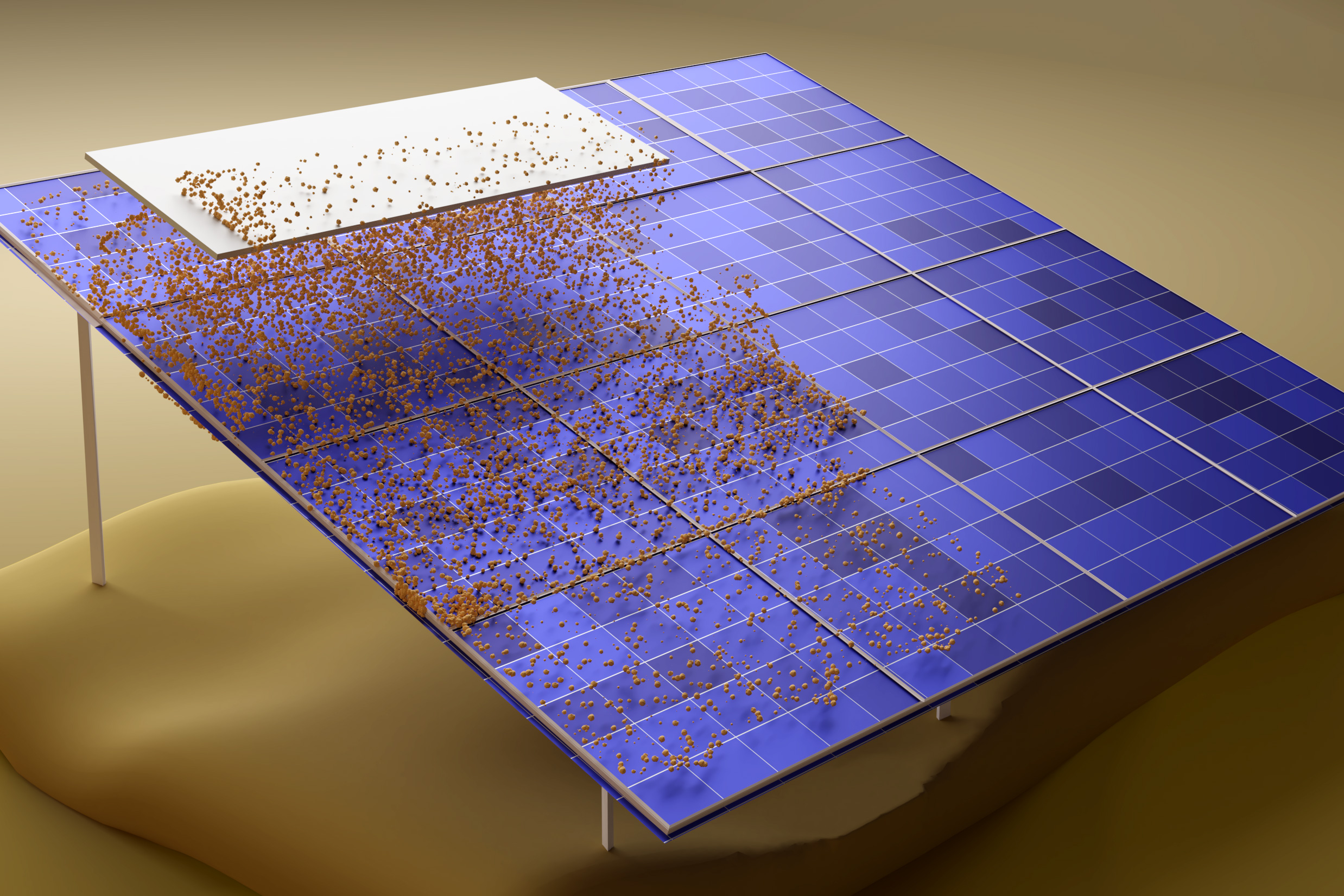Solar power is expected to reach 10 percent of global power generation by the year 2030, and much of that is likely to be located in desert areas, where sunlight is abundant. But the accumulation of dust on solar panels or mirrors is already a significant issue — it can reduce the output of photovoltaic panels by as much as 30 percent in just one month — so regular cleaning is essential for such installations.
Attempts at waterless cleaning are labor-intensive and tend to cause irreversible scratching of the surfaces, which also reduces efficiency. Now, a team of researchers at MIT has devised a way of automatically cleaning solar panels, or the mirrors of solar thermal plants, in a waterless, no-contact system that could significantly reduce the dust problem, they say.
Other groups have tried to develop electrostatic based solutions, but these have relied on a layer called an electrodynamic screen, using interdigitated electrodes. These screens can have defects that allow moisture in and cause them to fail, Varanasi says. While they might be useful on a place like Mars, he says, where moisture is not an issue, even in desert environments on Earth this can be a serious problem.
The new system they developed only requires an electrode, which can be a simple metal bar, to pass over the panel, producing an electric field that imparts a charge to the dust particles as it goes. An opposite charge applied to a transparent conductive layer just a few nanometers thick deposited on the glass covering of the solar panel then repels the particles, and by calculating the right voltage to apply, the researchers were able to find a voltage range sufficient to overcome the pull of gravity and adhesion forces, and cause the dust to lift away.
See
How to clean solar panels without water#
environment #
solarpower #
greenenergy #
solarpanels 
Dust that accumulates on solar panels is a major problem, but washing the panels uses huge amounts of water. MIT engineers have now developed a waterless cleaning method to remove dust on solar installations in water-limited regions, improving overall efficiency.
